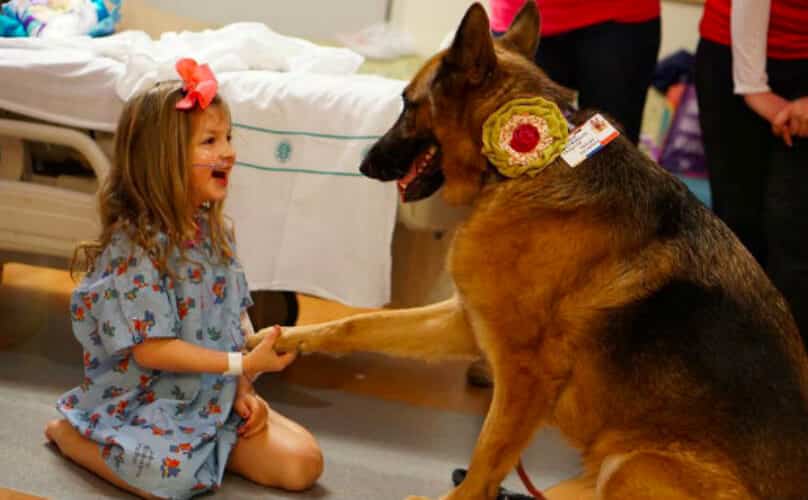Types of Dogs

Service Dog
Full protection under ADA
A Service Animal is NOT a pet. The ADA defines a service animal as a guide dog, signal dog, or other animal individually trained to provide assistance to a person with a disability. If they meet this definition, animals are considered service animals under the ADA regardless of whether they have been licensed or certified by state or local government. At Veteran Service Dogs, a certified Service Animal has completed a basic obedience course, has been trained for disability-mitigating tasks, has passed a public access certification, and has passed the AKC Canine Good Citizen evaluation.

Standards

Protection
Assistance Animal (ESA)
NO protection under ADA - Protections under FHA
An assistance animal (sometimes refered to as an Emotional Support Animal) is an animal that works, provides assistance, or performs tasks for the benefit of a person with a disability, or that provides emotional support that alleviates one or more identified effects of a person’s disability. An assistance animal is not a pet. An Assistance Animal (or ESA) is typically trained for basic obedience and has been trained to provide emotionally supportive behaviors for their handler. These behaviors are typically centered around providing affection and emotionally supportive behaviors to the handler when the dog senses a depressed or emotionally disturbed state.

Standards

Protection


Therapy Dog
NO protection under ADA
A Therapy Dog is typically trained for basic obedience and has been trained to provide emotionally supportive behaviors for others. These behaviors are typically centered around providing affection to people when the dog senses a depressed or emotionally disturbed state. These dogs are typically seen in a hospital environment providing care and affection to patients.

Standards

Protection
Companion Dog
NO protection under ADA
A Companion Dog is typically a pet. there is usually no professional obedience training provided. These animals are just a pet. They are still great, and a member of the family, just not afforded any protections under law.

Standards

Protection

